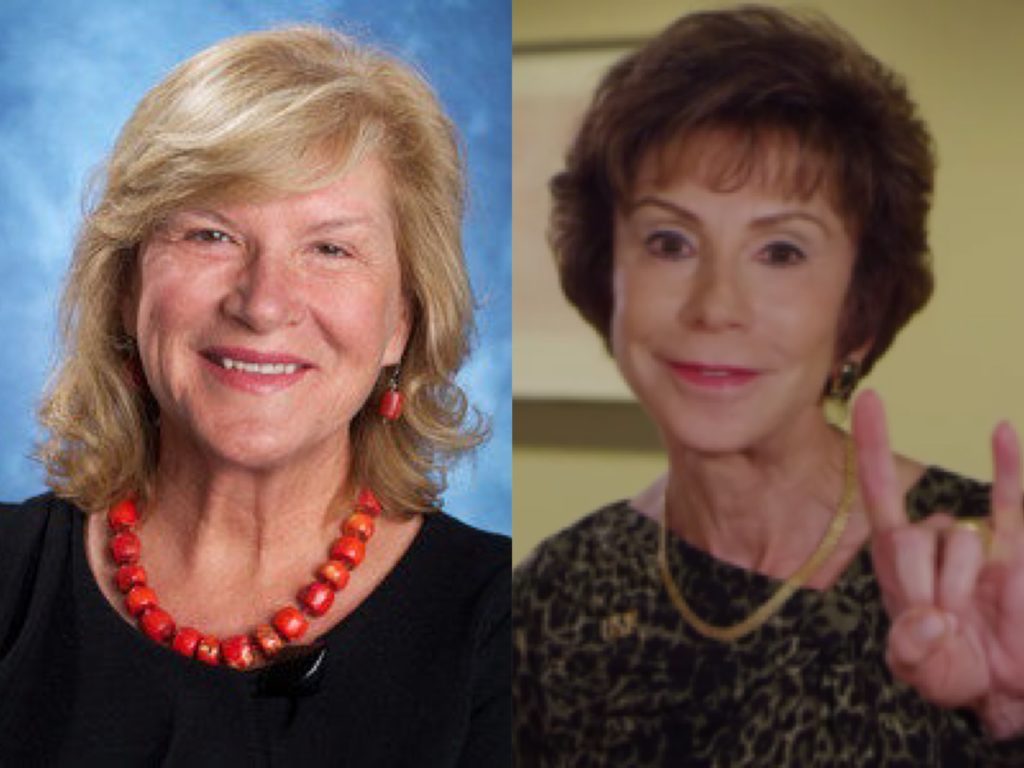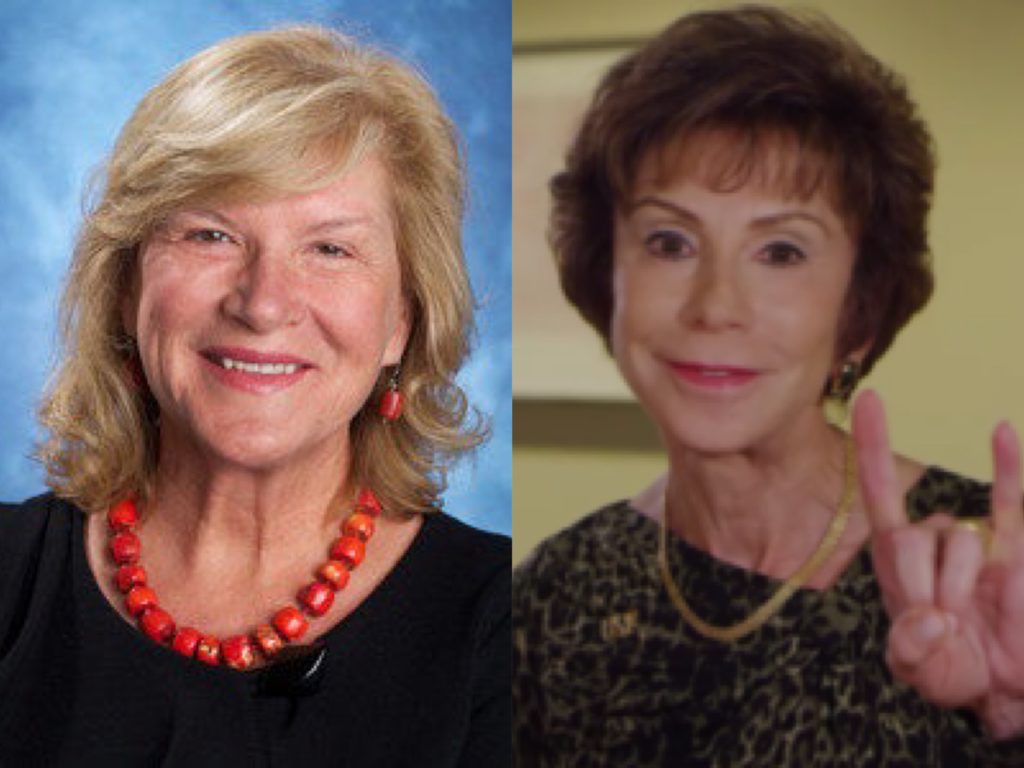
Courtesy of Sophia Wisniewska and USF
By Emily Wunderlich
A Hillsborough County circuit judge has dismissed key parts of former Regional Chancellor Sophia Wisniewska’s lawsuit against the USF system and its former president.
In an order issued on Oct. 31, Circuit Judge Ralph C. Stoddard ruled that Wisniewska is not entitled to punitive and emotional distress damages for the way then-USF system President Judy Genshaft ousted her in September 2017.
But the judge left standing — at least for now — Wisniewska’s quest for compensatory damages for the manner in which she contends Genshaft disparaged her reputation and destroyed her “employability and professional standing” in the days after Hurricane Irma skirted by the Tampa Bay area.
Under Florida law, compensatory damages are intended to compensate the plaintiff for his or her loss — in this case, Wisniewska’s job and inability to find another job. Punitive damages are designed to punish the defendant for reckless or negligent behavior.
Wisniewska’s lawsuit, filed on April 26, accused the USF system and Genshaft of breach of contract, defamation, the “intentional infliction of emotional distress,” and “tortious interference with a business relationship.”
The lawsuit seeks damages exceeding $15,000, which is standard language in a civil lawsuit in Florida circuit court.
At issue is the way that Genshaft decided to terminate Wisniewska after learning that she had evacuated to Atlanta as the hurricane approached west-central Florida and the three campuses of USF.
First, the lawsuit contends, Genshaft drafted an explosive termination letter falsely asserting that Wisniewska “lacked leadership” in her response to Irma and “created an intolerable safety risk to the students at USF.”
Wisniewska disputed Genshaft’s conclusions but agreed to voluntarily resign, the lawsuit says, with the understanding that the draft of the termination letter would not be put in her personnel file, where it would be available under Florida’s Public Records Law.
But Genshaft ignored that understanding, the lawsuit contends, and gave the draft letter to the Tampa Bay Times — an “intentional and outrageous” move that caused Wisniewska “severe monetary damages and emotional distress.” (The university system also released the draft letter to The Crow’s Nest.)
Under Judge Stoddard’s order, Wisniewska has until Nov. 20 to amend her complaint. A hearing has not yet been scheduled.
Now 67, Wisniewska lives in California, where she worked for a time as a senior adviser at the University of San Diego, according to her LinkedIn profile.
University spokesperson Adam Freeman said USF “has nothing further to add at this time because the matter is still ongoing.” He referred reporters to the statement he made in April, when Wisniewska first filed her complaint.
In the statement, Freeman said university leaders “strongly disagree with Dr. Wisniewska’s claims and we look forward to defending the decisions made around the time of her separation from USF.”
“The complaint is unexpected, as Dr. Wisniewska waived her right to future legal actions against the university in her resignation agreement,” he said.
The resignation agreement also addresses USF’s legal obligations under the Public Records Law — a key point in Wisniewska’s lawsuit.
It says that the agreement, “along with other records related to Dr. Wisniewska’s employment at USF,” may be subject to Chapter 119 of the Florida Statutes (the Public Records Law) “and subject to disclosure as a public record.”
The agreement adds: “USF’s production of records pursuant to Chapter 119 shall not be deemed a violation of any of the terms of this Agreement.”



